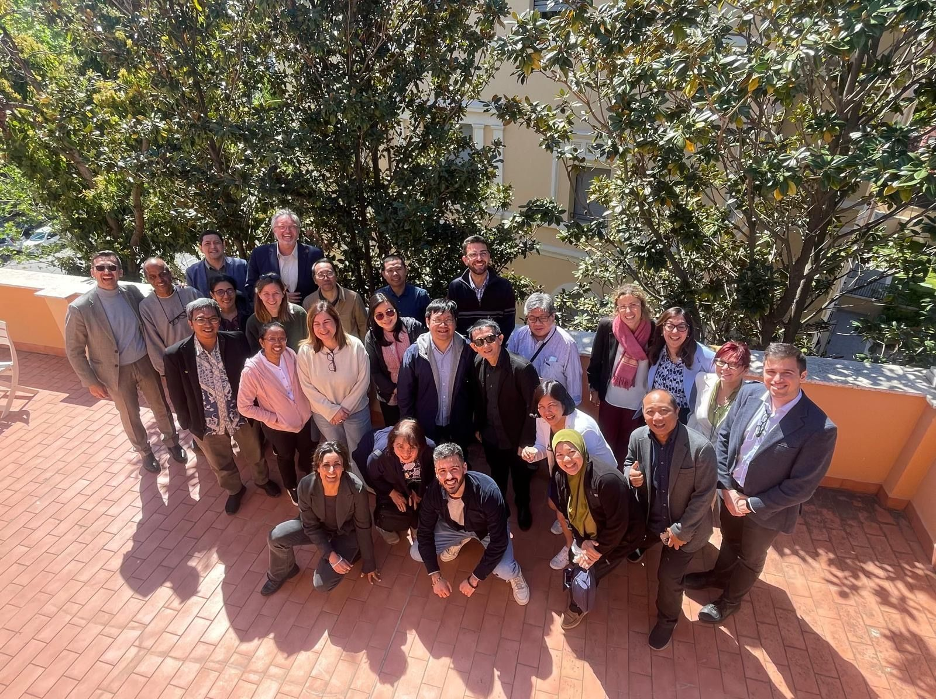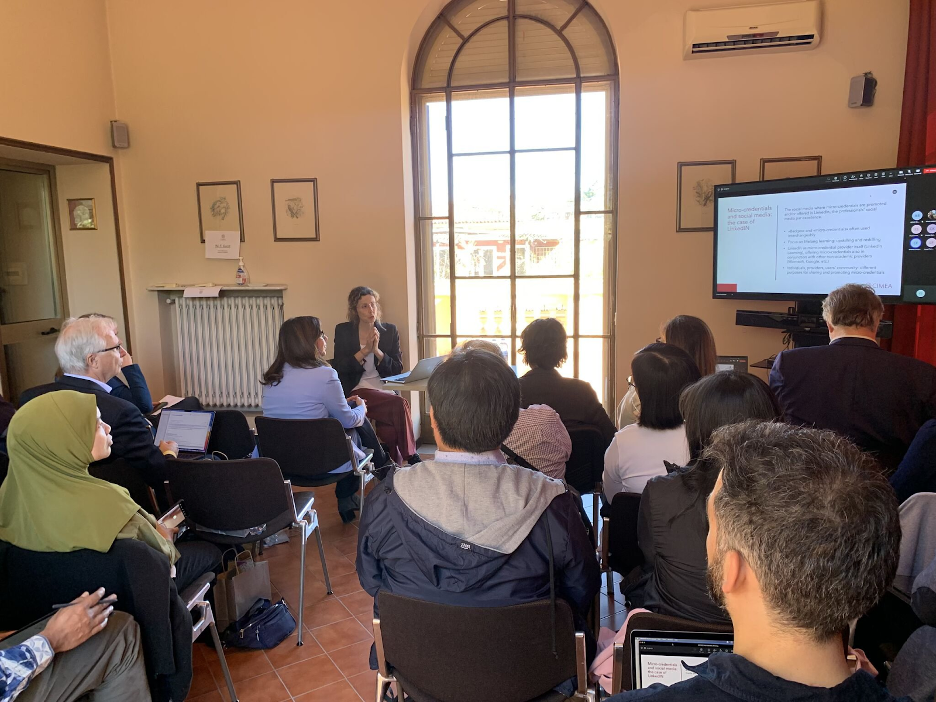

The University of the Philippines Open University (UPOU) was well-represented at the Micro-credentials for Life-long Learning and Employability: Building Capacities for Developing Agile Educational Interventions in Southeast Asian Universities (MicroCASA) project meetings and workshops held in Europe this April. Leading the Philippine delegation was Dr. Joane V. Serrano, Dean of the Faculty of Management and Development Studies (FMDS) at UPOU, who participated in the plenary meeting and course design workshop held in Madrid, Spain, on 15-16 April 2024.
Serving as the local coordinator for the MicroCASA project at Universidad Carlos III de Madrid (UC3M), a project funded under the Erasmus+ Programme “Capacity Building in the Field of Higher Education” by the European Commission, Dr. Serrano played a crucial role in discussions aimed at enhancing the use of microcredentials to support lifelong learning and employability in Southeast Asia.
Joining Dr. Serrano were members of the MicroCASA Philippines team: Asst. Prof. Peter Sy, Assistant Vice President for Digital Transformation of the University of the Philippines System (UP), Dr. Dennis Batangan, Research Scientist at the Ateneo de Manila University (ADMU) Institute of Philippine Culture (IPC) School of Social Sciences, and Dr. Marita Concepcion Castro Guevara, Associate Professor of the Department of Interdisciplinary Studies from ADMU. Together, they contributed their insights on the development and integration of microcredentials within the region.
After the Madrid meetings, the Philippine team participated in a series of follow-up activities in Rome, Italy, from 18-19 April 2024, organized by the Centre for Information on Mobility and Academic Equivalences (CIMEA) and Università Europea di Roma (UER). The two-day study visit focused on the design, recognition, and integration of microcredentials into academic processes in Southeast Asian universities.
The visit featured discussions on quality assurance in microcredentials, benchmarking exercises, and an interactive workshop on cultural intelligence, alongside representatives from higher education institutions (HEIs) in Indonesia, Malaysia, and the Philippines.


On the second day, hosted by CIMEA, the discussions covered recognition issues for microcredentials, the use of digital wallet platforms for certification, and a consortium meeting to strategize future project activities.
During the visit, Dr. Serrano presented the ongoing Digital Workplace Competency Training (DWCT) course under the MicroCASA-PH initiative, emphasizing the role of microcredentials in enhancing employability and lifelong learning in the region. The presentation was well-received by EU partners, highlighting the importance of continued collaboration and knowledge exchange to promote the adoption of microcredentials in Southeast Asia.
The MicroCASA project aims to build capacity for developing agile educational interventions, strengthen connections between higher education and employability in Southeast Asia, and support lifelong learning opportunities. The active participation of the Philippine team underscores the region’s commitment to these goals through innovative educational strategies in line with the Sustainable Development Goal (SDG) No. 4 (Quality Education) and No. 17 (Partnerships for the Goals).
Photos from MicroCASA’s Facebook Page.
Written by: Sydney Rovin Macahiya• Edited by: Larry N. Cruz
Sustainable Development Goals

















FMDS Socials